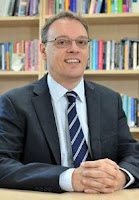The Faculty of Health and Social Care will be hosting two leading lifeworld research experts from Linnaeus University, Sweden 11 – 15 February 2013 as part of an Erasmus exchange. The purpose of the exchange is to build links in lifeworld led care and to forge collaboration for research, teaching and curriculum development, with a particular focus on learning from Swedish ideas about ‘Caring Science’.
Lise-Lotte Ozolins (RN, MNsc, PhD) is senior lecturer in the School of Health and Caring Sciences at Linnaeus University, Växjö, Sweden. Lise- Lotte leads a Lifeworld based Health Care Clinic where undergraduate students undertake key placements. Her research focuses on the phenomenology of touch in health care and how phenomenology can support the understanding of Caring Science. She is a key member of the European Academy of Caring Science and is pursuing collaborations in Lifeworld- led Care and Education.
Ulrica Horberg is Senior Lecturer in the School of Health and Caring Sciences at Linnaeus University, Växjö, Sweden. Ulrica leads the Lifeworld Centre for Health, Care and Learning (HCL). Her research interests include: forensic psychiatric care and how families can be a resource for care in this context, learning in health and social care and the intertwining of theory and praxis. Ulrica is a key member of the European Academy of Caring Science and is pursuing collaborations in Lifeworld- led Care and Education.
More information about the European Academy of Caring Science is available here: www.pubcare.uu.se/care/eacs
Seminars
During their visit they are undertaking a Seminar as part of the Cross Faculty Seminar Series in Medical Humanities, on Wednesday 13th February in Derwent Room 3 at 4.30pm.
The phenomenon of touch in healthcare contexts – a complex caring movement
A Swedish doctoral thesis by Lise-Lotte Ozolins explored the phenomenon of touch and described its meaning from a lifeworld perspective in the healthcare context. The intention was to deepen the understanding of the meanings of touch in the field of caring science. Based on 54 variations, in the form of interviews in varied healthcare contexts, touch showed a powerful and complex phenomenon. To understand more of the complexity a philosophical illumination was carried out to highlight questions of interest in the caring of patients, such as; how could it be understood that touch can be both awakening of rhythm and balance in life, as well as intruding and frightening? How can carers in touch with patients support wellbeing in a meaningful caring space? Texts from Edmund Husserl, Martin Heidegger, Maurice Merleau-Ponty and Les Todres were helpful to expand the understanding of caring touch. The philosophical illuminations shows how the reversibility of touch, and thus also the movement between individuality and being a part of humanity, between being in focus or in the background, to feel or be felt, between to see and to be seen, cuts through all the meanings of the phenomenon and is basic to understanding the character of the phenomenon of touch. Touch means a flowing movement in a phenomenal field that stretches between what may be described as liberating and restraining. The phenomenon of touch may be described as a complex caring movement; an interplay between lived bodies as a foundation to understand health, suffering, well-being, and care.
To be strategically struggling against resignation – The lived experience of being cared for in forensic psychiatric care
The paper focuses on the forensic psychiatric care of mentally disordered offenders from the patients’ experiences of their life situation in forensic psychiatric wards. To be referred to care in forensic psychiatric services can be seen as one of the most comprehensive encroachments society can impose upon a person’s life, as it entails a limitation of the individual’s freedom with no time limit. The paper is based on a study with the aim to describe patients’ experiences of their life situation at forensic psychiatric wards, with a focus on care. Eleven qualitative interviews have been carried out with patients at one of six main forensic clinics in Sweden. The analysis was based on the Reflective Lifeworld Research approach, founded on phenomenology. Results show how forensic psychiatric care can be non-caring with only moments of good care. By use of different strategies, the patients struggle to adapt to the demands of the caregivers in order to gain privileges. At the same time the patients are lacking meaningful and close relationships and long to get away from the system of forensic care. Being cared for entails a struggle against an approaching overwhelming sense of resignation. The paper highlights the need for more knowledge, understanding and support in order to provide health promoting and, in other respects, good care to patients in forensic psychiatric care.













